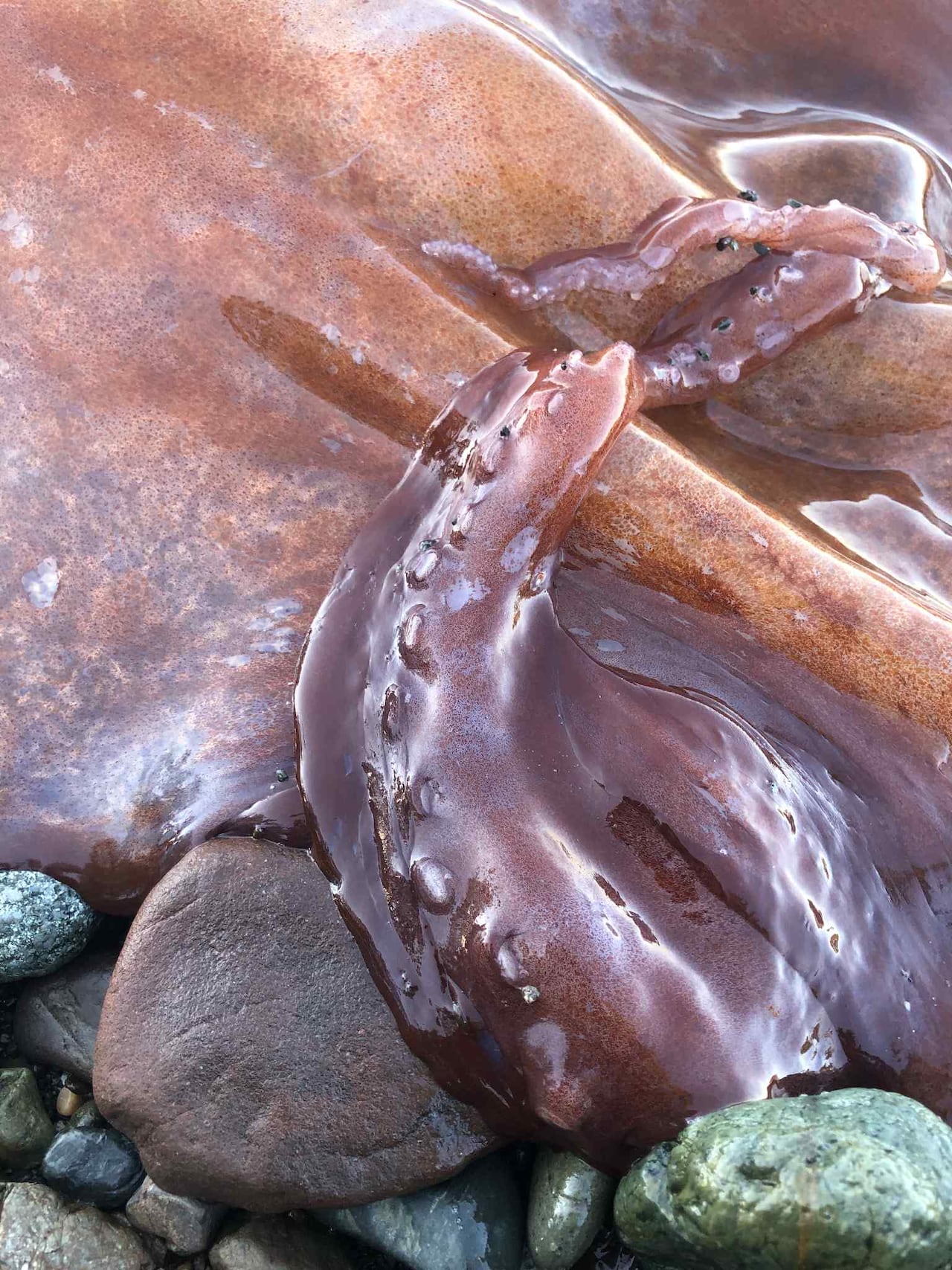Rare 'septopus' believed to have been found on shore of B.C.'s Pender Island

A scientist based in Washington state is celebrating after identifying what she believes to be a seven-arm octopus — typically found in the Atlantic Ocean — on B.C.’s coast.
The creature was discovered in August when Pender Island resident Kathleen Durant was walking her dog and came across what looked like a big, red jellyfish on the beach.
But then, she saw an eye.
Hoping to find out what it was, she posted it to the Field Naturalists of Vancouver Island Facebook page where marine biologist Casey Cook stepped in.
“I could tell from the images — because they were very good images of at least some of the anatomy of the animal — that it wasn't something that was local or at least known to be local,” Cook told CBC’s On The Island.

While some theorized it was a squid, Cook knew by the suction cups on its arms that it was an octopus — but what species?
“I knew I'd seen images of this animal and recently alive in our ocean,” she said.
She started researching old articles, comparing images of different species to the one found on Pender Island.

And then, a perfect match. The seven-arm octopus, or Haliphron atlanticus, also known as a septopus and the blob octopus.
The species actually has eight arms, Cook said. In females, all eight arms are obvious. But males tuck their eighth arm, called a hectocotylus, behind their eye to protect it, because that arm is used for breeding.

The septopus is generally an Atlantic species, but there have been a handful of seven-arm octopus sightings on the Pacific coast in recent years, Cook said.
According to a 2020 report from the Whidbey News-Times in Washington state, what was likely a seven-arm octopus washed up on a local beach — very similar to what was found on Pender Island.
It’s unclear how they may have ended up in these waters, Cook said.
“Climates are changing, currents are changing, and there's a lot of animals that are ending up over on the Pacific Ocean that maybe don't belong here,” she said.
Hypothetically, they could have been brought here in ballast water or by other means, she said, or perhaps they are native to the area and scientists have yet to figure it out.
“There's not a lot of research that I understand is happening in the deepest parts of the Salish Sea,” Cook said.
She added that while chances are slim the octopus is a Pacific species, that doesn’t mean it isn’t becoming a Pacific species.
“It seems like this specimen was doing well, it did not look injured to me,” Cook said. “It was perfectly intact as far as I'm concerned.”
cbc.ca





